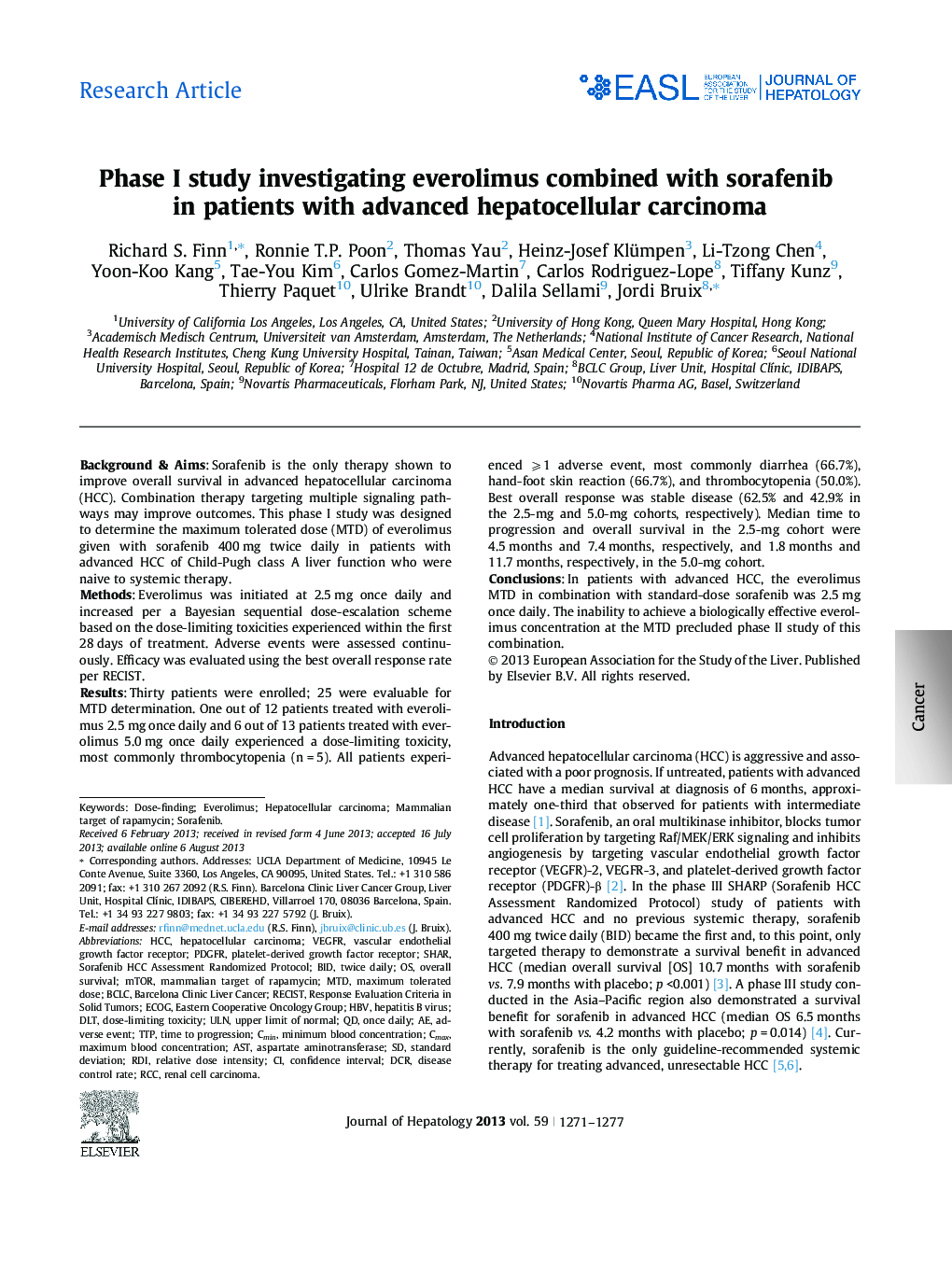| Article ID | Journal | Published Year | Pages | File Type |
|---|---|---|---|---|
| 6103994 | Journal of Hepatology | 2013 | 7 Pages |
Background & AimsSorafenib is the only therapy shown to improve overall survival in advanced hepatocellular carcinoma (HCC). Combination therapy targeting multiple signaling pathways may improve outcomes. This phase I study was designed to determine the maximum tolerated dose (MTD) of everolimus given with sorafenib 400 mg twice daily in patients with advanced HCC of Child-Pugh class A liver function who were naive to systemic therapy.MethodsEverolimus was initiated at 2.5 mg once daily and increased per a Bayesian sequential dose-escalation scheme based on the dose-limiting toxicities experienced within the first 28 days of treatment. Adverse events were assessed continuously. Efficacy was evaluated using the best overall response rate per RECIST.ResultsThirty patients were enrolled; 25 were evaluable for MTD determination. One out of 12 patients treated with everolimus 2.5 mg once daily and 6 out of 13 patients treated with everolimus 5.0 mg once daily experienced a dose-limiting toxicity, most commonly thrombocytopenia (n = 5). All patients experienced ⩾1 adverse event, most commonly diarrhea (66.7%), hand-foot skin reaction (66.7%), and thrombocytopenia (50.0%). Best overall response was stable disease (62.5% and 42.9% in the 2.5-mg and 5.0-mg cohorts, respectively). Median time to progression and overall survival in the 2.5-mg cohort were 4.5 months and 7.4 months, respectively, and 1.8 months and 11.7 months, respectively, in the 5.0-mg cohort.ConclusionsIn patients with advanced HCC, the everolimus MTD in combination with standard-dose sorafenib was 2.5 mg once daily. The inability to achieve a biologically effective everolimus concentration at the MTD precluded phase II study of this combination.
